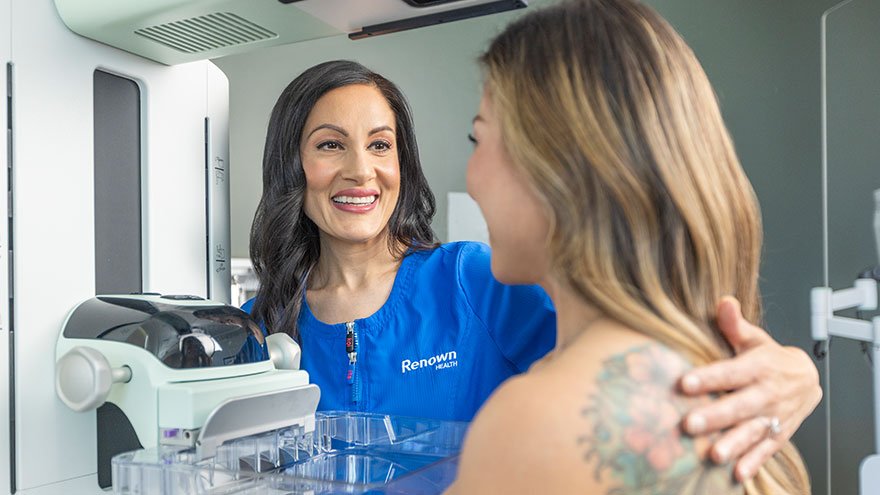

Men are generally less likely to visit their doctor for exams, screenings, and consults compared to women. To address this, we've collaborated with Dr. Bonnie Ferrara of Renown Health, to compile a list of eight essential screenings that can help men maintain their health.
1. Blood Pressure Tests
Ages 20+
Blood Pressure tests measure the pressure in your arteries as your heart pumps. Biennial (every two years) checks are recommended if you have normal blood pressure or more frequently if you have high blood pressure (hypertension) or low blood pressure (hypotension). The United States Preventative Services Taskforce cites normal blood pressure below 120 systolic (top number) and 80 diastolic (bottom number).
2. Cholesterol Screening
Ages 20+
High levels of cholesterol increase your risk of stroke and heart disease. A simple blood test will help your healthcare provider determine your numbers and if you're at risk. If you have a family history of diabetes or heart disease, you may need yearly screenings. But, again, your doctor can provide the best course of action.
Schedule An Exam

3. Colonoscopy
Ages 50+
A colonoscopy can detect changes or abnormalities in the large intestine (colon) and rectum. Doctors recommend if you have an average risk of colon cancer, begin screening at age 50. However, if you have an increased risk or family history, consider screening sooner. Generally, screening is advised every ten years, but if you are at risk, get screened every 3-to 5 years, depending on the recommendation after your initial colonoscopy.
4. Diabetes
Ages 45+
Prediabetes and diabetes can run in the family, so it's recommended to get screened for type 2 diabetes every three years if you know your history. Risk factors of diabetes include; heart disease and stroke, blindness, kidney disease, nerve damage, and impotence. Talk to your doctor about testing for this dangerous condition and what steps you can take for prevention.
5. Skin Cancer
Ages 20+
If you have a family history of skin cancer or experienced sunburns as a child, you're at higher risk for skin cancer. First, consult a dermatologist for a baseline skin check, and then annual checkups are routine. Self-care at home includes keeping an eye on changing moles and birthmarks as they signal a problem. And don't forget the sunscreen—even during the winter months!
6. Glaucoma
Ages 40+
It's important to have regular eye exams to detect and treat glaucoma before damage to the optic nerve occurs. Many forms of glaucoma have no warning signs, so early detection is imperative. If found in the early stages and treated adequately, vision loss can be slowed or prevented. The American Academy of Ophthalmology is a trusted resource for ophthalmic education.
7. Prostate Cancer
Ages 50+
Prostate cancer is one of the most common cancers in American men and can be detected using prostate-specific antigen (PSA) tests. This type of cancer can be slow-growing or aggressive and fast-growing. Therefore, early screening is vital before symptoms develop. If you have a family history, you can begin testing at age 40. Additionally, talk to your doctor about the risks and benefits of the test.
8. Abdominal Aortic Aneurysm
Ages 65+
If you've ever smoked, you should have an ultrasound to test for an abdominal aortic aneurysm—a weakened area of the aorta that can enlarge and rupture if it gets too large. Otherwise, men who have never smoked are at decreased risk, and your doctor can decide if this screening is necessary.
Related Blogs


7 Symptoms of Breast Cancer in Young Women
